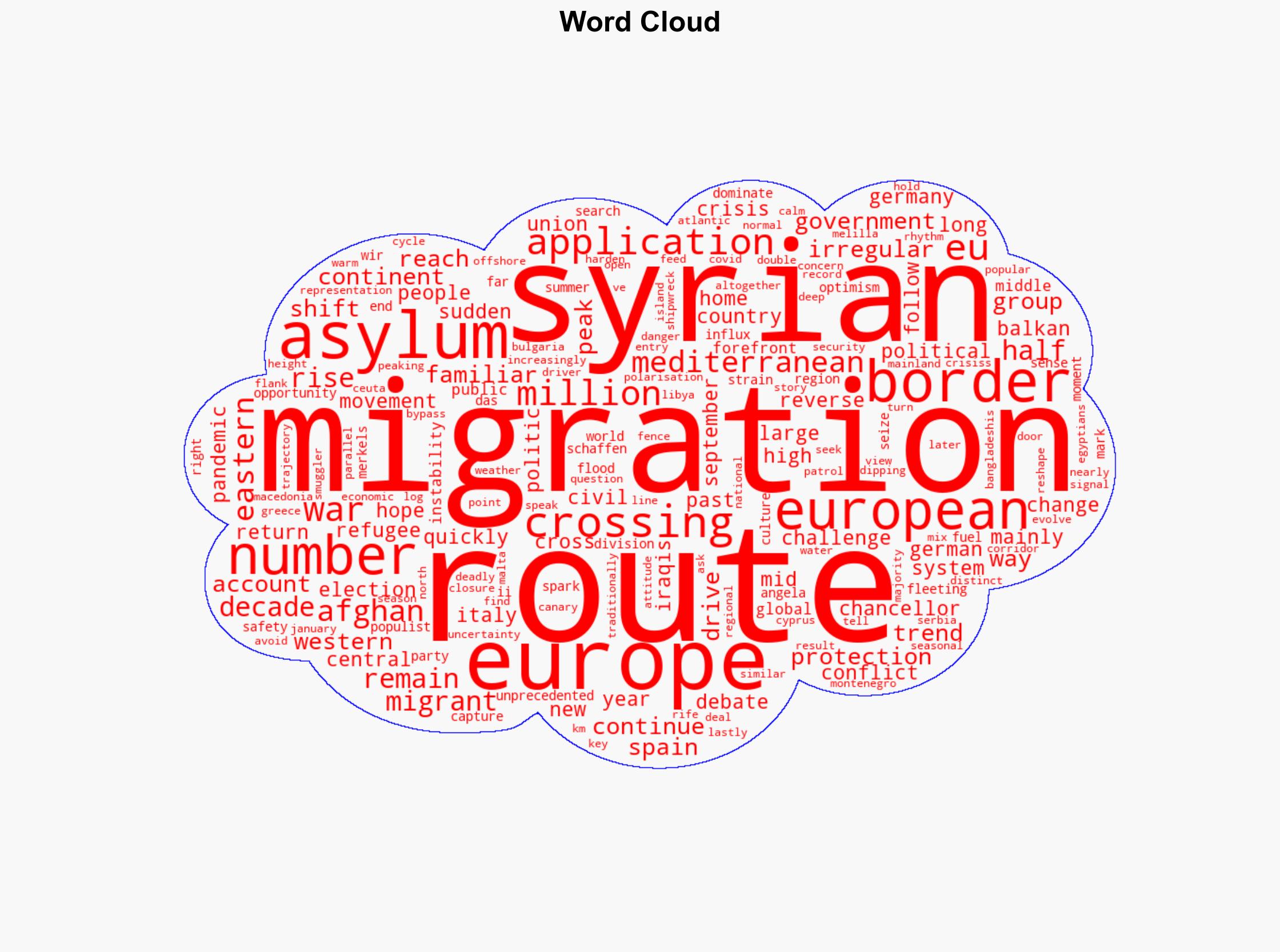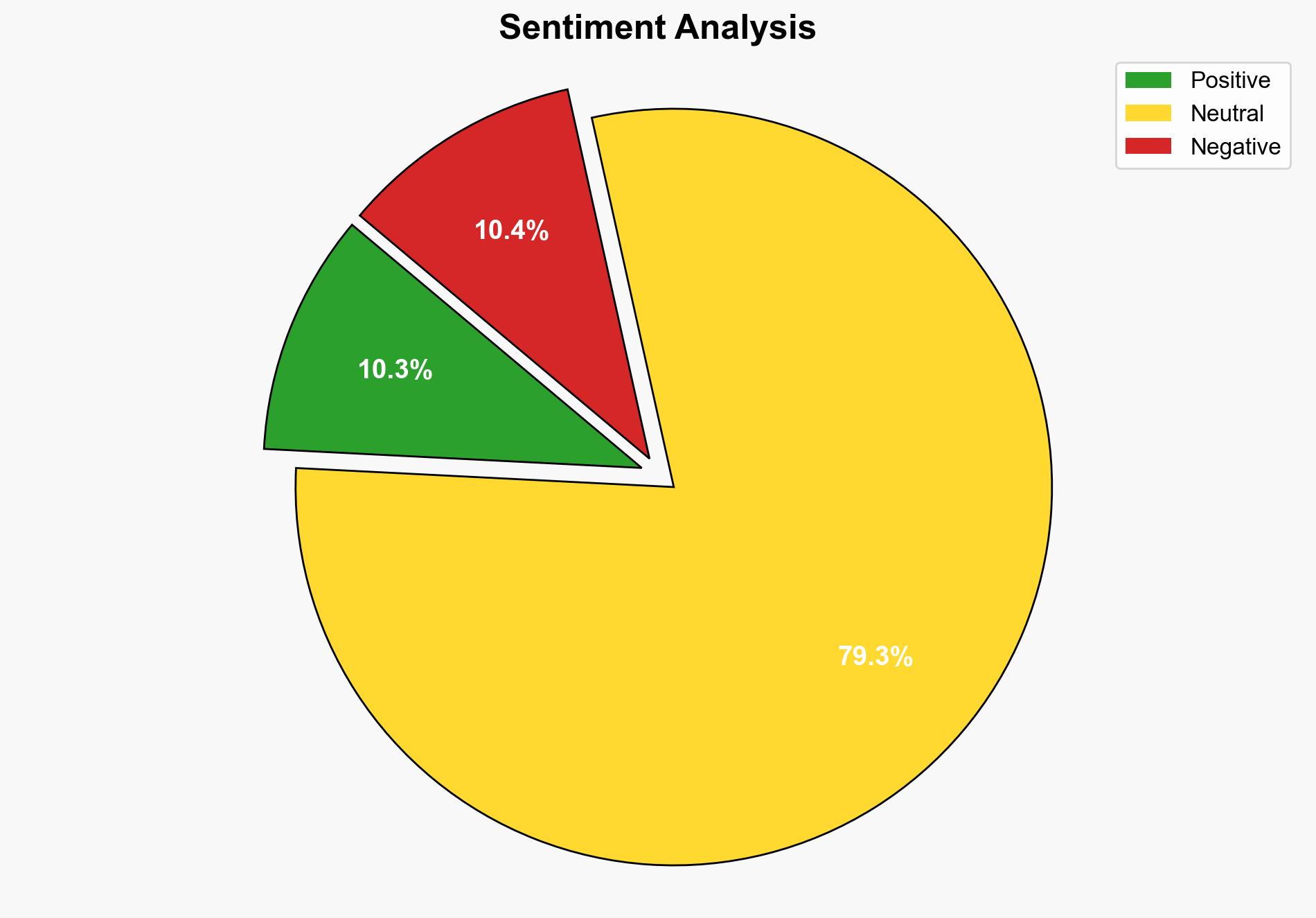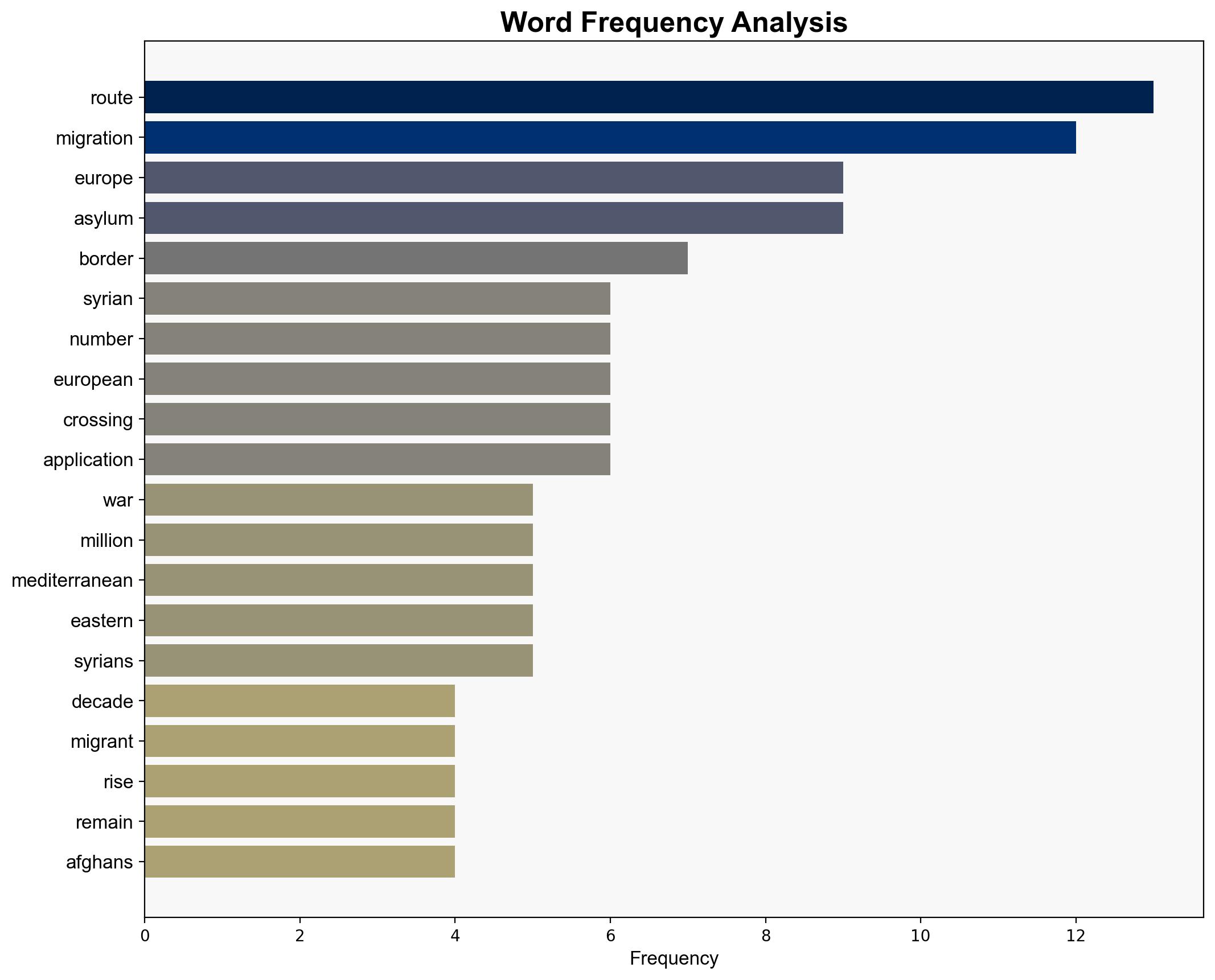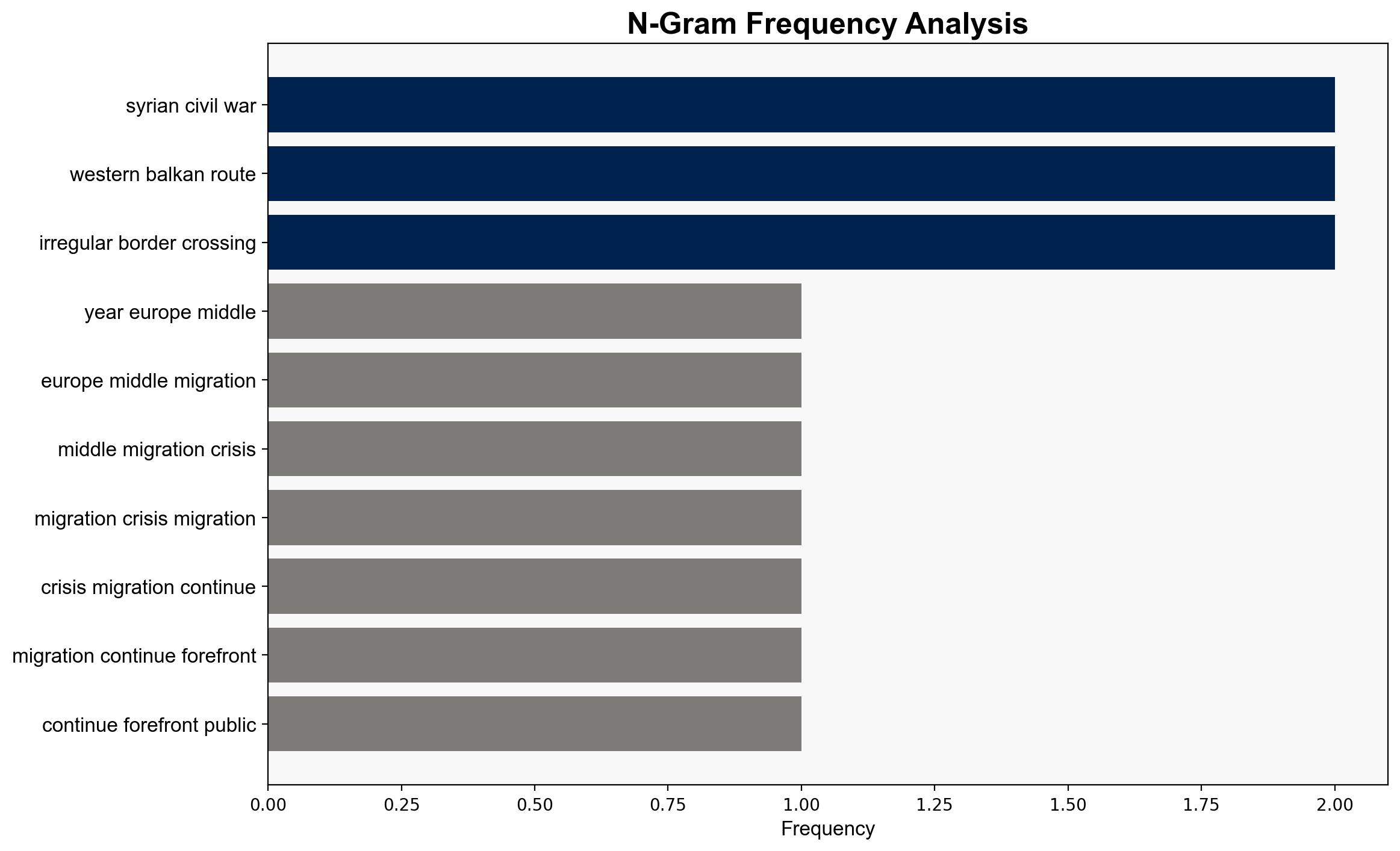Ten years on Is Europe really in the middle of another migration crisis – EURACTIV
Published on: 2025-11-05
Intelligence Report: Ten years on Is Europe really in the middle of another migration crisis – EURACTIV
1. BLUF (Bottom Line Up Front)
Europe is experiencing a sustained migration challenge rather than a crisis, characterized by evolving migration routes and shifting demographics. The hypothesis that migration is a new normal is better supported. Confidence level: Moderate. Recommended action: Strengthen border management and integration policies while addressing root causes of migration.
2. Competing Hypotheses
1. **Hypothesis A**: Europe is in the midst of another migration crisis similar to the one experienced during the Syrian civil war.
– Supported by the resurgence in migration numbers and the strain on asylum systems.
2. **Hypothesis B**: The current migration situation is a new normal, characterized by persistent but manageable migration flows.
– Supported by the adaptation of migration routes and the stabilization of asylum application numbers post-pandemic.
3. Key Assumptions and Red Flags
– **Assumptions**:
– Hypothesis A assumes that current migration levels will continue to rise unchecked, overwhelming European systems.
– Hypothesis B assumes that European countries will continue to adapt to migration flows without significant policy changes.
– **Red Flags**:
– Potential underreporting of migration data due to political biases.
– Inconsistent data on the impact of migration on local economies and security.
4. Implications and Strategic Risks
– **Economic**: Continued migration could strain public services and impact labor markets, but also provide economic benefits through workforce diversification.
– **Geopolitical**: Increased migration may lead to heightened tensions within the EU and with neighboring countries.
– **Security**: Risk of increased border tensions and potential exploitation by extremist groups.
– **Psychological**: Public perception of migration as a crisis could fuel populism and xenophobia.
5. Recommendations and Outlook
- Enhance border security and surveillance to manage migration flows effectively.
- Invest in integration programs to facilitate the social and economic inclusion of migrants.
- Address root causes of migration through international cooperation and development aid.
- Scenario Projections:
- Best: Stabilized migration flows with successful integration and economic contributions from migrants.
- Worst: Escalating migration leading to political instability and increased xenophobia.
- Most Likely: Continued manageable migration with periodic surges requiring adaptive policy responses.
6. Key Individuals and Entities
– Angela Merkel: Former German Chancellor, known for her “Wir schaffen das” stance during the 2015 migration crisis.
– Current German Chancellor: Mentioned in context of asylum policies for Syrian refugees.
7. Thematic Tags
national security threats, migration policy, regional stability, integration strategies




